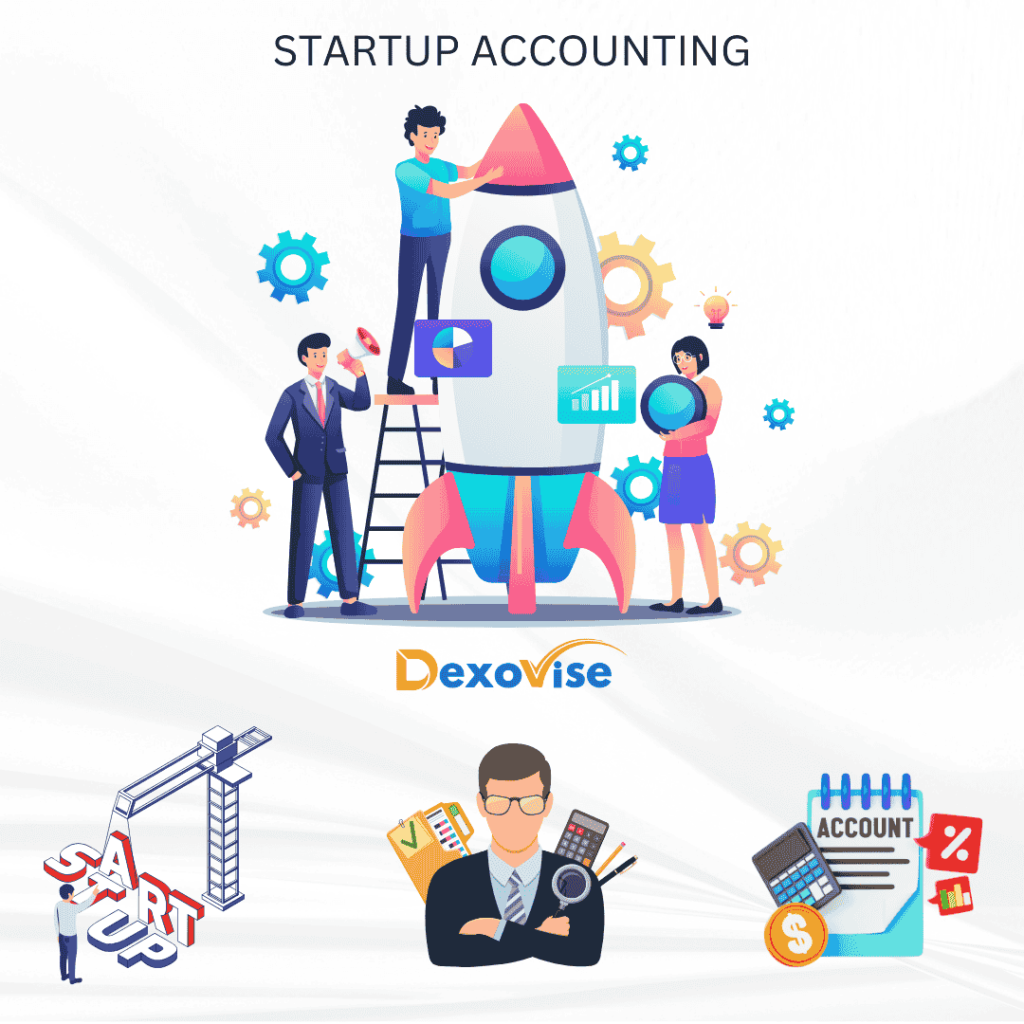Introduction

What makes Accounting For Startups and SMBs in 2025 important?. 🚀 Attention, aspiring entrepreneurs and small business owners! Are you ready to take your startup or SMB to new heights in 2025? If so, there’s one crucial element you can’t afford to overlook: accounting.
In the fast-paced world of startups, where innovation and growth are paramount, proper financial management often takes a backseat. But here’s the truth: neglecting your accounting can be the difference between soaring success and devastating failure. As we approach 2025, the landscape of startup accounting is evolving rapidly, presenting both challenges and opportunities for savvy business owners.
So, what does it take to master your accounting for startup or SMB in 2025? From leveraging cutting-edge technology to navigating complex tax considerations, we’ve got you covered. In this comprehensive guide, we’ll explore everything from essential accounting practices to financial planning and forecasting. We’ll delve into how to scale your accounting processes for growth and ensure compliance in an ever-changing regulatory environment. Are you ready to unlock the financial potential of your business? Let’s dive in! 👇
Why Is Accounting Important for a Startup Business?
Accounting is the backbone of any successful startup, providing crucial insights and financial clarity that can make or break a new business. Here’s why accounting is indispensable for startups:
1. Financial Health and Decision-Making
Proper accounting practices enable startups to:
Monitor cash flow
Track expenses and revenue
Make informed business decisions
2. Compliance and Investor Relations
Accurate accounting is essential for:
Meeting tax obligations
Attracting potential investors
Demonstrating financial responsibility
3. Growth and Scalability
Robust accounting systems support:
Identifying growth opportunities
Managing resources efficiently
Planning for future expansion
Accounting Benefit | Impact on Startup |
|---|---|
Cash Flow Management | Ensures operational stability |
Cost Control | Maximizes profitability |
Financial Forecasting | Aids in strategic planning |
Audit Readiness | Builds credibility with stakeholders |
By prioritizing accounting from the outset, startups lay a solid foundation for financial health and long-term success. It’s not just about keeping books; it’s about gaining the financial intelligence necessary to navigate the challenges of entrepreneurship and capitalize on opportunities for growth.
Key accounting trends for startups in 2025
As we look towards 2025, startup accounting is undergoing significant changes. The following trends are shaping the financial landscape for new businesses:
Real-time financial reporting
Predictive analytics for cash flow management
Blockchain-based bookkeeping
Sustainability accounting
Trend | Impact on Startups |
|---|---|
Real-time reporting | Improved decision-making |
Predictive analytics | Better cash flow management |
Blockchain bookkeeping | Enhanced transparency and security |
Sustainability accounting | Increased investor appeal |
Impact of AI and automation on financial management
Artificial Intelligence and automation are revolutionizing startup accounting. These technologies are:
Streamlining repetitive tasks
Enhancing accuracy in financial forecasting
Providing intelligent insights for cost control
Facilitating faster audit processes
Regulatory changes affecting startup accounting
In 2025, startups must navigate a complex regulatory environment. Key changes include:
Stricter data privacy laws affecting financial reporting
New tax regulations for digital businesses
Enhanced disclosure requirements for ESG (Environmental, Social, and Governance) factors
These evolving trends, technological advancements, and regulatory shifts are reshaping how startups approach accounting. By staying informed and adaptable, new businesses can leverage these changes to build a strong financial foundation for growth and success.
Looking to Simplify Financial Planning and Analysis?
Discover tailored FP&A solutions designed to help startups and SMBs streamline budgeting, forecasting, and decision-making for sustainable growth.
Essential Accounting Practices for Startups
Choosing the right accounting method
When setting up your startup’s accounting system, selecting the appropriate method is crucial. The two primary options are:
Cash-basis accounting
Accrual-basis accounting
Method | Pros | Cons |
|---|---|---|
Cash-basis | Simple, tracks actual cash flow | May not reflect true financial position |
Accrual-basis | Accurate financial picture, GAAP compliant | More complex, requires more effort |
For most startups, accrual-basis accounting is recommended as it provides a more accurate financial snapshot and is preferred by investors and lenders.
Setting up a robust bookkeeping system
Implementing a solid bookkeeping system is fundamental for startup success. Consider these key steps:
Choose user-friendly accounting software
Set up a chart of accounts
Establish a system for expense tracking
Implement regular reconciliation processes
Managing cash flow effectively
Cash flow management is critical for startup survival. To optimize your cash flow:
Create and maintain cash flow forecasts
Monitor accounts receivable and payable
Establish clear payment terms with customers and suppliers
Consider alternative financing options when necessary
Tracking key financial metrics
Monitoring essential financial metrics helps gauge your startup’s health and growth. Focus on:
Burn rate
Customer acquisition cost (CAC)
Lifetime value (LTV)
Gross margin
Monthly recurring revenue (MRR)
By implementing these essential accounting practices, startups can build a strong financial foundation for growth and success. Next, we’ll explore how technology can further enhance your accounting processes.
Leveraging Technology for Efficient Accounting
When the market becomes more competitive, startups and SMBs must leverage the power of technology to streamline their accounting processes. Let’s understand how modern solutions can revolutionize your financial management.
1. Cloud-based accounting software solutions
Cloud-based accounting software has become indispensable for startups, offering:
Real-time financial data access
Automated bookkeeping processes
Enhanced collaboration among team members
Scalability to accommodate business growth
Popular options include:
Software | Key Features | Best For |
|---|---|---|
QuickBooks Online | Comprehensive reporting, integrations | Small to medium-sized businesses |
Xero | User-friendly interface, robust API | Tech-savvy startups |
FreshBooks | Time tracking, project management | Service-based businesses |
2. Integrating fintech tools for seamless operations
Fintech tools can significantly enhance your accounting workflow:
Payment gateways (e.g., Stripe, PayPal)
Expense management apps (e.g., Expensify, Receipts)
Invoicing software (e.g., Invoice Ninja, Zoho Invoice)
Cash flow forecasting tools (e.g., Float, Pulse)
3. Blockchain applications in startup finances
Blockchain technology is set to transform startup accounting by offering:
Immutable transaction records
Smart contracts for automated financial processes
Enhanced security and transparency
Streamlined auditing procedures
As we move towards 2025, embracing these technological advancements will be crucial for maintaining a competitive edge in financial management.
Financial Planning and Forecasting
Creating realistic financial projections
Startups must master the art of creating realistic financial projections to navigate the uncertain waters of business growth. Begin by analyzing historical data, market trends, and industry benchmarks. Use conservative estimates and factor in potential challenges to avoid overly optimistic projections.
Projection Type | Key Components | Timeframe |
|---|---|---|
Revenue | Sales forecast, pricing strategy | 1-3 years |
Expenses | Fixed costs, variable costs, COGS | 1-3 years |
Cash Flow | Inflows, outflows, burn rate | Monthly for 1st year, quarterly after |
Budgeting strategies for startups
Effective budgeting is crucial for startups to allocate resources efficiently and control costs. Consider these strategies:
Zero-based budgeting: Justify every expense from scratch
Lean budgeting: Focus on essential expenses only
Flexible budgeting: Adjust based on revenue fluctuations
Rolling budgets: Update regularly to reflect changing conditions
Scenario planning for financial resilience
Prepare your startup for various financial outcomes through scenario planning:
Develop best-case, worst-case, and most likely scenarios
Identify key variables affecting each scenario (e.g., market demand, funding)
Create action plans for each scenario to enhance adaptability
Regularly review and update scenarios as market conditions change
By mastering these financial planning and forecasting techniques, startups can build a solid foundation for growth and navigate the challenges of 2025’s business landscape. With a clear financial roadmap, you’ll be better equipped to make informed decisions and attract potential investors.
Tax Considerations for Startups in 2025
As we go deep into the tax landscape for startups in 2025, it’s crucial to understand the evolving tax environment and how it impacts your business. Let’s explore the key areas you need to focus on to optimize your tax strategy.
Understanding New Tax Incentives for Startups
In 2025, governments are offering more tailored incentives to foster innovation and growth in the startup ecosystem. These include:
R&D tax credits for technology-driven startups
Green energy incentives for eco-friendly businesses
Employee retention credits for startups creating jobs
Incentive Type | Potential Benefit | Eligibility Criteria |
|---|---|---|
R&D Tax Credit | Up to 20% of qualifying expenses | Must conduct qualified research activities |
Green Energy Incentive | Tax deduction up to 30% of investment | Use of renewable energy sources |
Employee Retention Credit | Up to $7,000 per employee annually | Maintain workforce during economic challenges |
Navigating International Tax Implications
With the rise of remote work and global markets, startups must be aware of:
Transfer pricing regulations
Double taxation agreements
Permanent establishment rules
Digital services taxes
Maximizing Deductions and Credits
To optimize your tax position:
Leverage home office deductions for remote teams
Utilize startup costs amortization
Take advantage of Section 179 for equipment purchases
Explore work opportunity tax credits for hiring from specific groups
Remember, tax laws are complex and constantly changing. Consulting with a tax professional specializing in startups can help ensure compliance while maximizing benefits. As we move forward, let’s examine how to scale your accounting processes for sustainable growth.
Funding and Investment Accounting
As your startup grows, managing funding and investment becomes crucial. Let’s explore the key aspects of accounting for these financial activities.
Accurate record-keeping for investor relations
Maintaining precise records is essential for fostering strong investor relationships. Here’s why:
Builds trust and transparency
Facilitates informed decision-making
Ensures compliance with legal requirements
Record Type | Importance | Frequency |
|---|---|---|
Financial statements | High | Quarterly |
Cap table | High | As needed |
Investor communications | Medium | Monthly |
Valuation reports | High | Annually |
Accounting for different funding rounds
Each funding round requires specific accounting treatments:
Seed funding: Often involves convertible notes or SAFE agreements
Series A: Typically preferred stock issuance
Series B and beyond: May include complex equity structures
Valuation methods and reporting
Accurate valuation is crucial for fundraising and financial reporting. Common methods include:
Discounted Cash Flow (DCF)
Comparable Company Analysis
Precedent Transactions
Regularly updating valuations helps startups track growth and prepare for future funding rounds. Remember, transparent reporting of valuation methods builds credibility with investors and stakeholders.
As we move forward, we’ll explore how to scale your accounting processes to support your startup’s growth trajectory.
Compliance and Reporting for Startups
Meeting regulatory requirements
Startups must navigate a complex web of regulatory requirements to ensure compliance. These requirements vary based on industry, location, and business structure. Key areas include:
Business registration and licensing
Tax compliance (federal, state, and local)
Employment laws and regulations
Industry-specific regulations
To stay compliant, startups should:
Identify applicable regulations
Implement compliance tracking systems
Regularly review and update processes
Seek professional advice when needed
Preparing financial statements
Accurate financial statements are crucial for startups to assess their financial health and attract investors. The three main financial statements are:
Statement | Purpose |
|---|---|
Balance Sheet | Shows assets, liabilities, and equity |
Income Statement | Displays revenue, expenses, and profit/loss |
Cash Flow Statement | Tracks cash inflows and outflows |
Startups should prepare these statements monthly or quarterly to maintain a clear financial picture and make informed decisions.
Audit readiness and best practices
Being audit-ready is essential for startups, especially when seeking funding or preparing for an exit. Best practices include:
Maintaining organized and accurate financial records
Implementing strong internal controls
Documenting all financial processes and procedures
Regularly reconciling accounts
Keeping thorough documentation for all transactions
By following these practices, startups can ensure they’re prepared for potential audits and demonstrate financial transparency to stakeholders. This readiness can enhance credibility and facilitate smoother fundraising processes.
Scaling Accounting Processes for Growth
As your startup develop into a small or medium-sized business, your accounting processes must adapt to support this growth. Let’s explore how to scale your accounting practices effectively.
Transitioning from startup to SMB accounting
The leap from startup to SMB accounting requires a shift in mindset and processes. Here’s a comparison of key differences:
Aspect | Startup Accounting | SMB Accounting |
|---|---|---|
Focus | Cash flow management | Profitability and growth |
Reporting | Basic financial statements | Detailed financial analysis |
Systems | Simple bookkeeping software | Integrated accounting systems |
Compliance | Minimal regulatory requirements | Increased compliance needs |
Building a skilled finance team
A robust finance team is crucial for scaling your accounting processes. Consider these steps:
Hire a qualified CFO or controller
Recruit specialized accountants (e.g., tax, payroll)
Invest in ongoing training and development
Foster a culture of financial literacy across the organization
Implementing internal controls
As your business grows, establishing strong internal controls becomes essential. Key areas to focus on include:
Segregation of duties
Regular financial audits
Clear approval processes for expenses and payments
Robust cybersecurity measures to protect financial data
By scaling your accounting processes effectively, you’ll be better equipped to handle the financial complexities that come with growth, ensuring your business remains financially healthy and audit-ready.
Conclusion
Accounting for startups and SMBs in 2025 will be a dynamic and crucial aspect of business success. From understanding the importance of proper financial management to leveraging cutting-edge technology, startups must embrace a holistic approach to accounting. By implementing essential practices, focusing on financial planning, and staying compliant with evolving regulations, entrepreneurs can build a solid foundation for growth and attract potential investors.
As the business landscape continues to evolve, startups and SMBs must prioritize their accounting processes to stay competitive and financially healthy. By staying informed about the latest trends, technologies, and best practices in startup accounting, entrepreneurs can make informed decisions, optimize their financial operations, and position their businesses for long-term success in the ever-changing market of 2025 and beyond.
FAQs on Accounting for Startups
Q1: How often should startups review their financial statements?
Startups should review their financial statements at least monthly. Regular reviews help identify trends, manage cash flow, and make informed decisions.
Q2: What are the essential financial statements for startups?
The three key financial statements are:
Income Statement
Balance Sheet
Cash Flow Statement
Q3: Should startups hire an in-house accountant or outsource?
The decision depends on various factors:
Factor | In-house | Outsource |
|---|---|---|
Cost | Higher | Lower |
Control | More | Less |
Expertise | Limited | Varied |
Scalability | Less flexible | More flexible |
Q4: How can startups improve their cash flow management?
Tips for better cash flow management:
Invoice promptly
Offer early payment discounts
Negotiate favorable payment terms with suppliers
Use cash flow forecasting tools
Q5: What tax deductions are commonly overlooked by startups?
Often overlooked deductions include:
Home office expenses
Professional development costs
Startup costs (up to $5,000)
Health insurance premiums
Remember, tax laws change frequently, so consult a professional for the most up-to-date advice.








